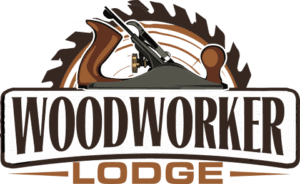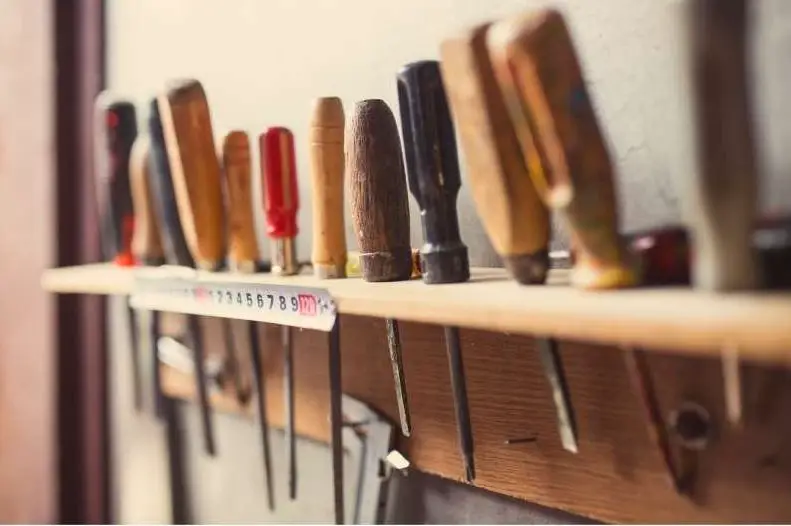There are certainly many tools you can choose from for your workshop, and everyone has their favorites. But there is an important distinction between tools in woodworking, and that is power vs. hand tools. There is a lot of debate about this topic, but which one should you be using?
Power tools can do jobs faster and require less practice in woodworking, while hand tools are less expensive, generally safer, and you can argue it can be more fun for some people. There is no right or wrong answer; using what you are comfortable with is always the key.
We will be going over the key differences between hand and power tools and what is better suited for different users. Read on if you’d like to know more!
You would be surprised how often this question comes up. We talk a lot about random topics like this during our live workshops on Cucamonga Woodworking. You can watch our past workshops on YouTube here(Link to Cucamonga Woodworking)
Woodworking Tools
A proper set of tools is one of the most important things in woodworking, next to skill and safety. The saying goes that the tool doesn’t make the woodworker, but it can make a difference. We will always say that you should always buy quality gear that will last even if you are a beginner. Shop used if you have to; good gear means a better experience overall and a lot of time saved.
When recommending tools when starting woodworking, influencers will usually recommend having these pieces of equipment:
- Miter Saw
- Circular Saw
- Jigsaw
- Random Orbital Sander
- Table Saw
- Drill & Driver
- Workbench
Notice how all of these are power tools besides the workbench. They are great tools, and we agree that this is a great selection for beginners or anyone who wants a power toolset on a budget. But we also like to mention that you can get into woodworking by just getting a chisel set around $50, such as this VonHaus 8pc Chisel Set, which is an ancient way to do woodworking is entirely hand-done.
Of course, hand tools get more advanced than just chisels, but it goes to show that woodworking can be as basic or as complex as you want it to be when it comes to equipment. If you want to be fancy, you can buy a CNC router.
This brings us to the running debate that has been going on about power vs. hand tools. Both have sides that swear that their choice is best, but before we can come to any sort of conclusion, we need to analyze the pros and cons of both to determine which is best.
Power vs. Hand Tools
We’ve briefly established that woodworking has a wide range of tools, with the main divider being the contrast between hand and power tools.
When discussing hand tools, we refer to equipment such as hacksaws, hammers, “regular” screwdrivers, chisels, and all that old-school stuff that has been around far longer than the powered equipment we have today.
On the other hand, power tools are “advanced” versions of these. Instead of sawing away manually, you might run the wood through a circular saw or a jigsaw, but of which don’t require as much effort by the user and can get the cut quicker and, in many cases – cleaner.
But that’s just one example of power tools as an alternative to established hand tools. We are all familiar with the cliche “smashing your thumb with a hammer” scenario; heck, some of you might have experienced this painful phenomenon first hand, but instead of that, you can use an impact driver or a hammer drill to accomplish the task.
It sounds like power tools are objectively better at first, but there is more to it than that. Both power and hand tools are still being used for a reason, and we are here today to share with you why that is.
Power Tool Pros
We’ve established that power tools are simply an easier way to get the job done. There is no getting around it; powered equipment takes a lot less manual labor, which results in faster results. And for people who aren’t experienced with hand tools, the results will generally come out better overall.
In short: If you value efficiency, power tools are the way to go.
Power Tool Cons
Power tools are great, but they also have drawbacks that lead to some people steering away from them. For one, they are more expensive, which makes it harder to dive into woodworking if you have a limited budget. And for the price of mediocre power tools, you can get yourself high-quality hand tools.
Furthermore, there is more that can go wrong with power tools since they are technology. Maybe one day, you find that your circular saw isn’t starting or that your drill is jammed. These things happen, and it can ruin the mood.
Power tools are also much more dangerous if misused. I wrote this article on the most dangerous common power tools with more information(Link Here)
Hand Tool Pros
We mentioned above that hand tools are cheaper overall, and it’s true. The cost of having a set of hand tools is going to be quite a bit cheaper than power tools, which makes the hobby more affordable overall.
Using hand tools is arguably more relaxing as well. You don’t have the noise that power tools generate and so you can choose to listen to your favorite music, podcasts, or audiobooks while doing your project.
It also feels more personal to do woodworking projects by hand; there is a real sense of satisfaction, putting together something without technology. It’s up to you if you care about this or not, but it’s there.
Finally, a skilled woodworker will rely on their precision rather than leaving it up to how a power tool was set up/built. Some projects require the utmost accuracy, making more sense to do the work by hand.
Hand Tool Cons
The first and most obvious disadvantage of using hand tools is that you need to put in more work for a job that won’t get done as quickly if you had used power tools. You will have to cut, hammer, and smooth things out all by hand and without the assistance that power tools provide.
Next, it is arguably easier to mess up your project when using hand tools because they rely on your ability to be precise. If you become experienced doing your woodworking this way, then this likely won’t be much of a problem, but there is a higher skill ceiling when working with hand tools.
Which One Is Better Overall?
We don’t think there is any denying that power tools help woodworkers work faster and often more accurately, depending on the skill level. If you value efficiency, then using power tools is going to be the obvious choice for you.
However, using hand tools is a different experience. For many woodworkers, the hobby isn’t about finishing products as quickly as possible, but rather enjoying the journey from creation to a finished product. Sure, it takes more effort to do woodworking this way, but not having a noisy workshop and not worrying about mechanical failures, for the most part, is something to be valued.
Overall, it’s best to use what you think you’ll be comfortable with. If we had to give an opinion, though, we would say it is helpful to have at least some power tools lying around just so that you have options. For example, a jigsaw is a convenient tool for making quick, precise cuts. We also think a power drill should be handy – they aren’t expensive and can make life quite a bit easier in the workshop.
Conclusion
Power and hand tools have their advantages and disadvantages, and both certainly have their place in modern woodworking. Whether you go all the way to one side or the other, we all have one thing in common: the love for woodworking.
If you’d like more insight on this topic, we recommend checking out this video below:
Sources
- Popular Woodworking: Hand Tool vs. Power Tool
- Toolsturf: Hand Tools vs. Power Tools: What’s the Difference?
- Tools Owner: What Advantages Do Hand Tools Have Over Power Tools?

